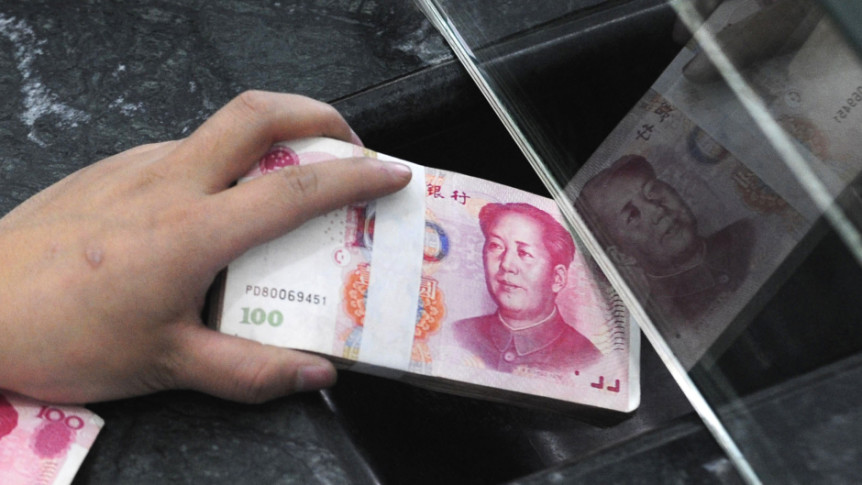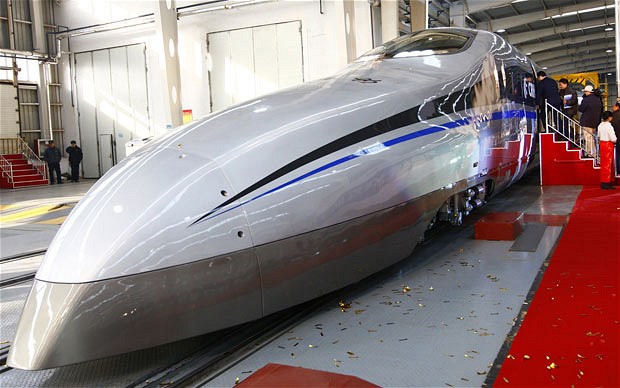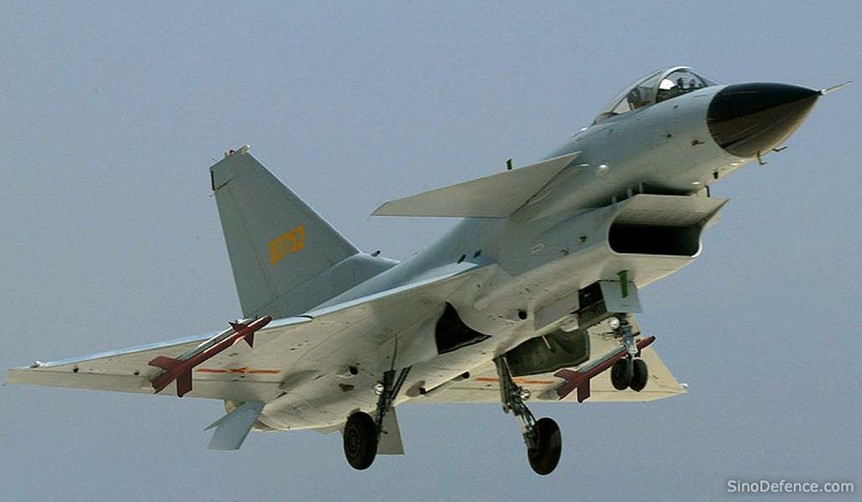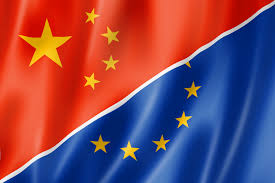Cris Osborn
China Unveiled its New 5th-Generation J-31 Stealth Fighter in November of Last Year
The U.S. Air Force’s technological air power superiority over China is rapidly diminishing in light of rapid Chinese modernization of fighter jets, cargo planes and stealth aircraft, according to analysts, Pentagon officials and a Congressional review released last year.
The 2014 U.S.-China Economic and Security Review Commission recommended that Congress appoint an outside panel of experts to assess the U.S.-Chinese military balance and make recommendations regarding U.S. military plans and budgets, among other things.
The Commission compiled its report based upon testimony, various reports and analytical assessments along with available open-source information. An entire chapter is dedicated to Chinese military modernization.
The review states that the Chines People’s Liberation Army currently has approximately 2,200 operational aircraft, nearly 600 of which are considered modern.
“In the early 1990s, Beijing began a comprehensive modernization program to upgrade the PLA Air Force from a short-range, defensively oriented force with limited capabilities into a modern, multi-role force capable of projecting precision airpower beyond China’s borders, conducting air and missile defense and providing early warning,” the review writes.
Regarding stealth aircraft, the review mentions the recent flights of prototypes of the Chinese J-20 stealth fighter, calling the aircraft more advanced than any other air platform currently deployed in the Asia-Pacific region. The Chinese are also testing a smaller stealth fighter variant called the J-31 although its intended use is unclear, according to the report.
Last year, China displayed the Shenyang J-31 stealth fighter at China’s Zuhai Air show, according to various reports. However, several analysts have made the point that it is not at all clear if the platform comes close to rivaling the technological capability of the U.S. F-35.
Nevertheless, the U.S. technological advantage in weaponry, air and naval platforms is rapidly decreasing, according to the review.
To illustrate this point, the review cites comments from an analyst who compared U.S.-Chinese fighter jets to one another roughly twenty years ago versus a similar comparison today.
The analyst said that in 1995 a high-tech U.S. F-15, F-16 or F/A-18 would be vastly superior to a Chinese J-6 aircraft. However today — China’s J-10 and J-11 fighter jet aircraft would be roughly equivalent in capability to an upgraded U.S. F-15, the review states.
Alongside their J-10 and J-11 fighters, the Chinese also own Russian-built Su-27s and Su-30s and is on the verge of buying the new Su-35 from Russia, the review states.
“The Su-35 is a versatile, highly capable aircraft that would offer significantly improved range and fuel capacity over China’s current fighters. The aircraft thus would strengthen China’s ability to conduct air superiority missions in the Taiwan Strait, East China Sea, and South China Sea as well as provide China with the opportunity to reverse engineer the fighter’s component parts, including its advanced radar and engines, for integration into China’s current and future indigenous fighters,” the review writes.
In addition to stealth technology, high-tech fighter aircraft and improved avionics, the Chinese have massively increased their ability with air-to-air missiles over the last 15-years, the review finds.
“All of China’s fighters in 2000, with the potential exception of a few modified Su-27s, were limited to within-visual-range missiles. China over the last 15 years also has acquired a number of sophisticated short and medium-range air-to-air missiles; precision-guided munitions including all-weather, satellite-guided bombs, anti-radiation missiles, and laser-guided bombs; and long-range, advanced air-launched land-attack cruise missiles and anti-ship cruise missiles,” the review says.
The review also points to the Y-20 aircraft, a new strategic airlifter now being tested by the Chinese which has three times the cargo-carrying capacity of the U.S. Air Force’s C-130. Some of these new planes could be configured into tanker aircraft, allowing the Chinese to massively increase their reach and ability to project air power over longer distances.
At the moment, the Chinese do not have a sizeable or modern fleet of tankers, and many of their current aircraft are not engineered for aerial refueling, a scenario which limits their reach.
More…
About the Author










